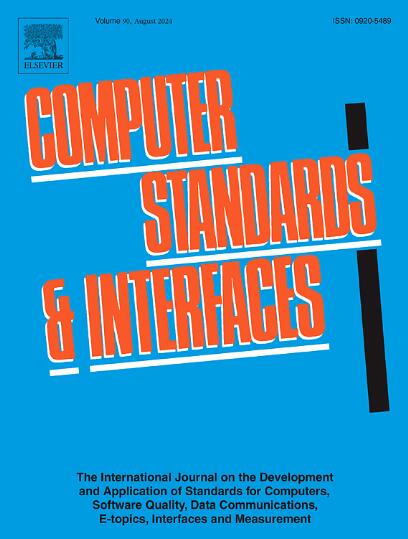PQHealthcare: An efficient cloud data sharing system via Functional Encryption from lattices
IF 4.1
2区 计算机科学
Q1 COMPUTER SCIENCE, HARDWARE & ARCHITECTURE
引用次数: 0
Abstract
With the rapid development of the large language models () service on the cloud, especially in the healthcare sector, the usage of large models is becoming increasingly popular. However, training these models always involves sensitive information containing lots of personal medical data. And thus, such training processes might result in the exposure of privacy information. In order to help the users eliminate their concerns and share their data in a secure way, we need to find a privacy-preserving method for data sharing in the public cloud service environment.
While traditional public-key encryption () schemes can effectively encrypt healthcare data, they typically offer protection in an “all-or-nothing” manner, lacking flexibility and imposing a significant computational burden on public cloud servers. In contrast, Functional Encryption () offers a more flexible way of encryption with access control, making it ideal for the cloud data sharing environment. Furthermore, we observe that the majority of computations involved in training large models can be represented by inner product functions. To establish a secure public cloud data sharing system, we propose an efficient scheme for inner product function class, making it well-suited for various real-world applications. We will demonstrate that our scheme achieves post-quantum security based on lattice assumptions.
PQHealthcare:通过格子功能加密的高效云数据共享系统
随着云上大型语言模型(LLM)服务的快速发展,特别是在医疗保健领域,大型模型的使用越来越流行。然而,训练这些模型总是涉及到包含大量个人医疗数据的敏感信息。因此,这样的培训过程可能会导致隐私信息的暴露。为了帮助用户消除顾虑,安全地共享数据,我们需要在公共云服务环境中找到一种保护隐私的数据共享方法。虽然传统的公钥加密(PKE)方案可以有效地加密医疗保健数据,但它们通常以“全有或全无”的方式提供保护,缺乏灵活性,并且给公共云服务器带来了巨大的计算负担。相比之下,功能加密(Functional Encryption, FE)提供了一种更灵活的加密方式和访问控制,使其成为云数据共享环境的理想选择。此外,我们观察到训练大型模型所涉及的大多数计算都可以用内积函数表示。为了建立一个安全的公共云数据共享系统,我们提出了一种高效的内部产品函数类FE方案,使其非常适合各种实际应用。我们将证明我们的方案实现基于晶格假设的后量子安全。
本文章由计算机程序翻译,如有差异,请以英文原文为准。
求助全文
约1分钟内获得全文
求助全文
来源期刊

Computer Standards & Interfaces
工程技术-计算机:软件工程
CiteScore
11.90
自引率
16.00%
发文量
67
审稿时长
6 months
期刊介绍:
The quality of software, well-defined interfaces (hardware and software), the process of digitalisation, and accepted standards in these fields are essential for building and exploiting complex computing, communication, multimedia and measuring systems. Standards can simplify the design and construction of individual hardware and software components and help to ensure satisfactory interworking.
Computer Standards & Interfaces is an international journal dealing specifically with these topics.
The journal
• Provides information about activities and progress on the definition of computer standards, software quality, interfaces and methods, at national, European and international levels
• Publishes critical comments on standards and standards activities
• Disseminates user''s experiences and case studies in the application and exploitation of established or emerging standards, interfaces and methods
• Offers a forum for discussion on actual projects, standards, interfaces and methods by recognised experts
• Stimulates relevant research by providing a specialised refereed medium.
 求助内容:
求助内容: 应助结果提醒方式:
应助结果提醒方式:


